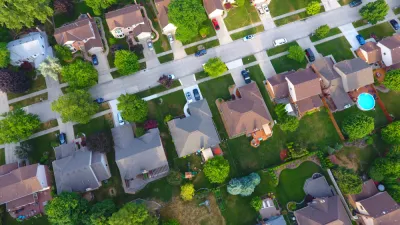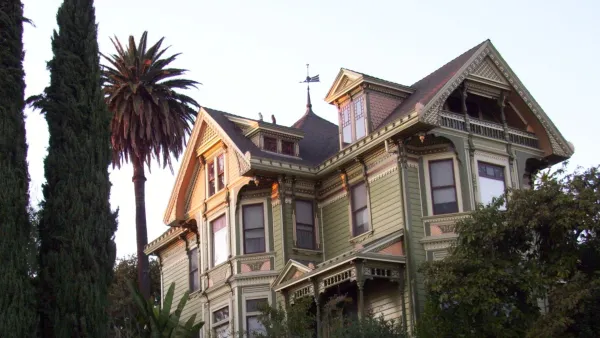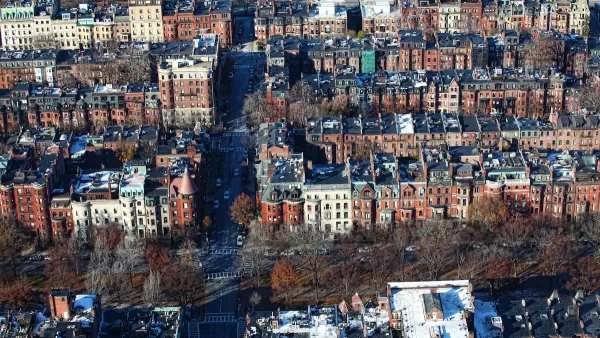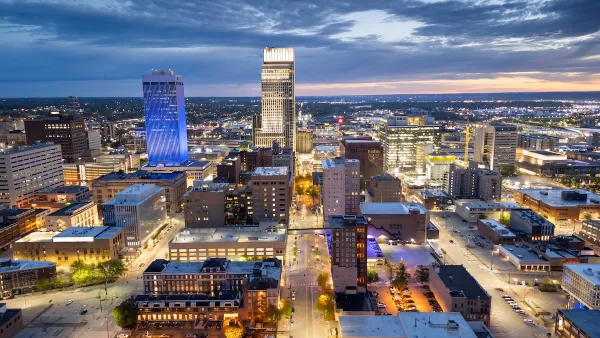Although the current housing crisis has been compared with the housing crash of the late 2000s, experts caution that affordability issues could plague the U.S. housing market for years to come.

With median home prices up by 20 percent in the last year and rents rising across the country, some believe that something has to give, soon. But experts warn that the overheated housing market we're seeing now isn't just a bubble, reports Emily Badger. While rampant price growth similar to today's preceded the 2007 housing crash, at that time, the rise in costs was experienced by less than half of U.S. cities, compared to 80 percent today.
As Badger writes, "There’s probably no quick reprieve coming, no rollback in stratospheric home prices if you can just wait a little longer to jump in." It's "about the fundamentals," says Jenny Schuetz of Brookings: "not enough houses, and huge numbers of people wanting homes." For households on the verge of homeownership before the pandemic, the explosive rise in prices may have pushed them back by years.
As housing experts and advocates have repeatedly pointed out, the imbalance between supply and demand is worsening the housing crisis, but policymakers are not taking aggressive steps to correct the problem. And even if the migration caused by remote work evens out, other factors like institutional investors are likely here to stay. "Today, first-time home buyers in once-affordable markets have competition from all kinds of sources that didn’t exist a generation ago: from global capital, from all-cash 'iBuyers' that size up homes by algorithm, from institutional investors renting single-family homes, from smaller-scale investors running Airbnbs."
Ultimately, economists interviewed in the article express a pessimistic outlook, with most foreseeing that affordability will continue to be a major concern for American households for several years.
FULL STORY: Something Has to Give in the Housing Market. Or Does It?

National Parks Layoffs Will Cause Communities to Lose Billions
Thousands of essential park workers were laid off this week, just before the busy spring break season.

Retro-silient?: America’s First “Eco-burb,” The Woodlands Turns 50
A master-planned community north of Houston offers lessons on green infrastructure and resilient design, but falls short of its founder’s lofty affordability and walkability goals.

Delivering for America Plan Will Downgrade Mail Service in at Least 49.5 Percent of Zip Codes
Republican and Democrat lawmakers criticize the plan for its disproportionate negative impact on rural communities.

Test News Post 1
This is a summary

Test News Headline 46
Test for the image on the front page.

Balancing Bombs and Butterflies: How the National Guard Protects a Rare Species
The National Guard at Fort Indiantown Gap uses GIS technology and land management strategies to balance military training with conservation efforts, ensuring the survival of the rare eastern regal fritillary butterfly.
Urban Design for Planners 1: Software Tools
This six-course series explores essential urban design concepts using open source software and equips planners with the tools they need to participate fully in the urban design process.
Planning for Universal Design
Learn the tools for implementing Universal Design in planning regulations.
EMC Planning Group, Inc.
Planetizen
Planetizen
Mpact (formerly Rail~Volution)
Great Falls Development Authority, Inc.
HUDs Office of Policy Development and Research
NYU Wagner Graduate School of Public Service





























